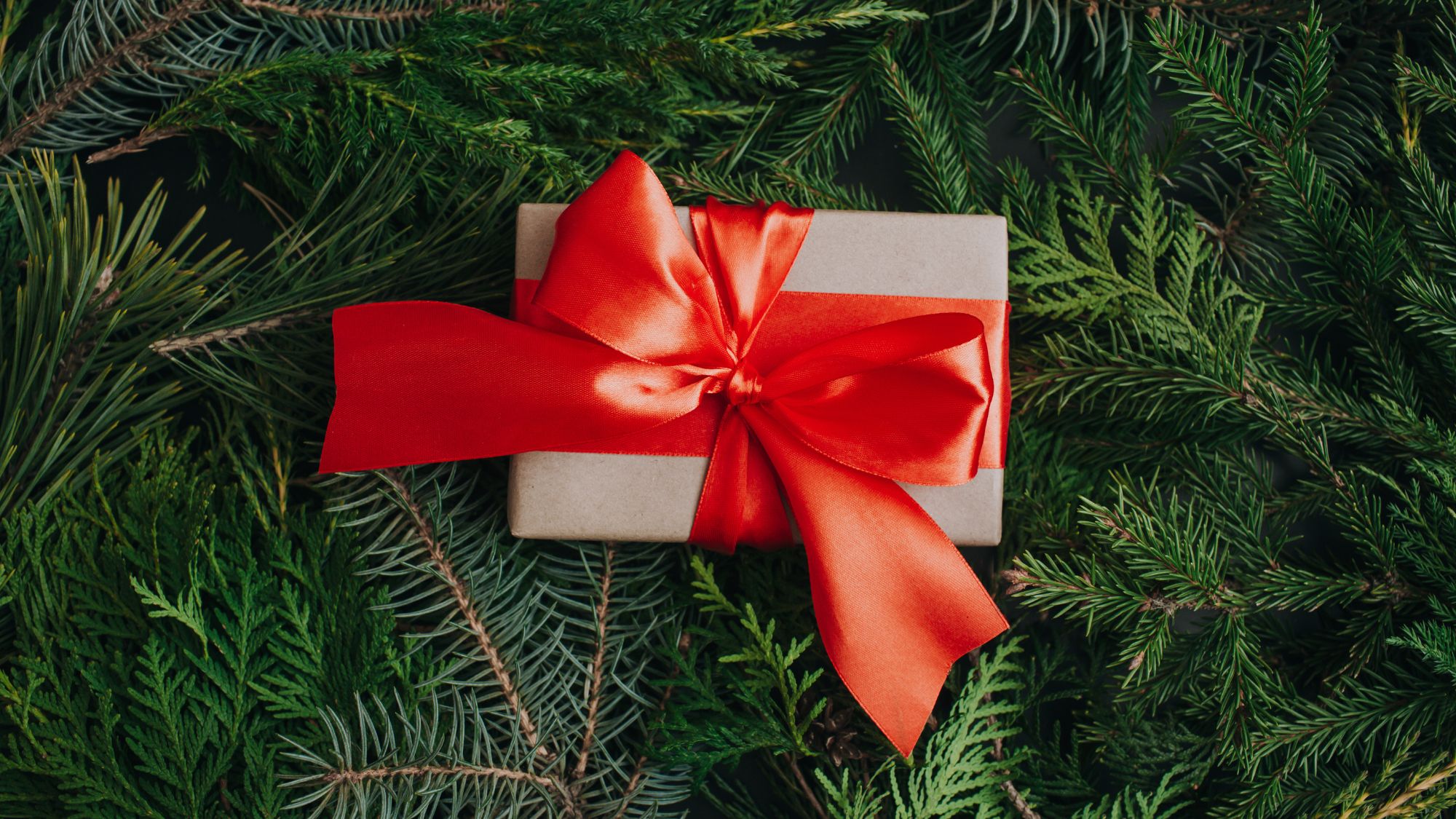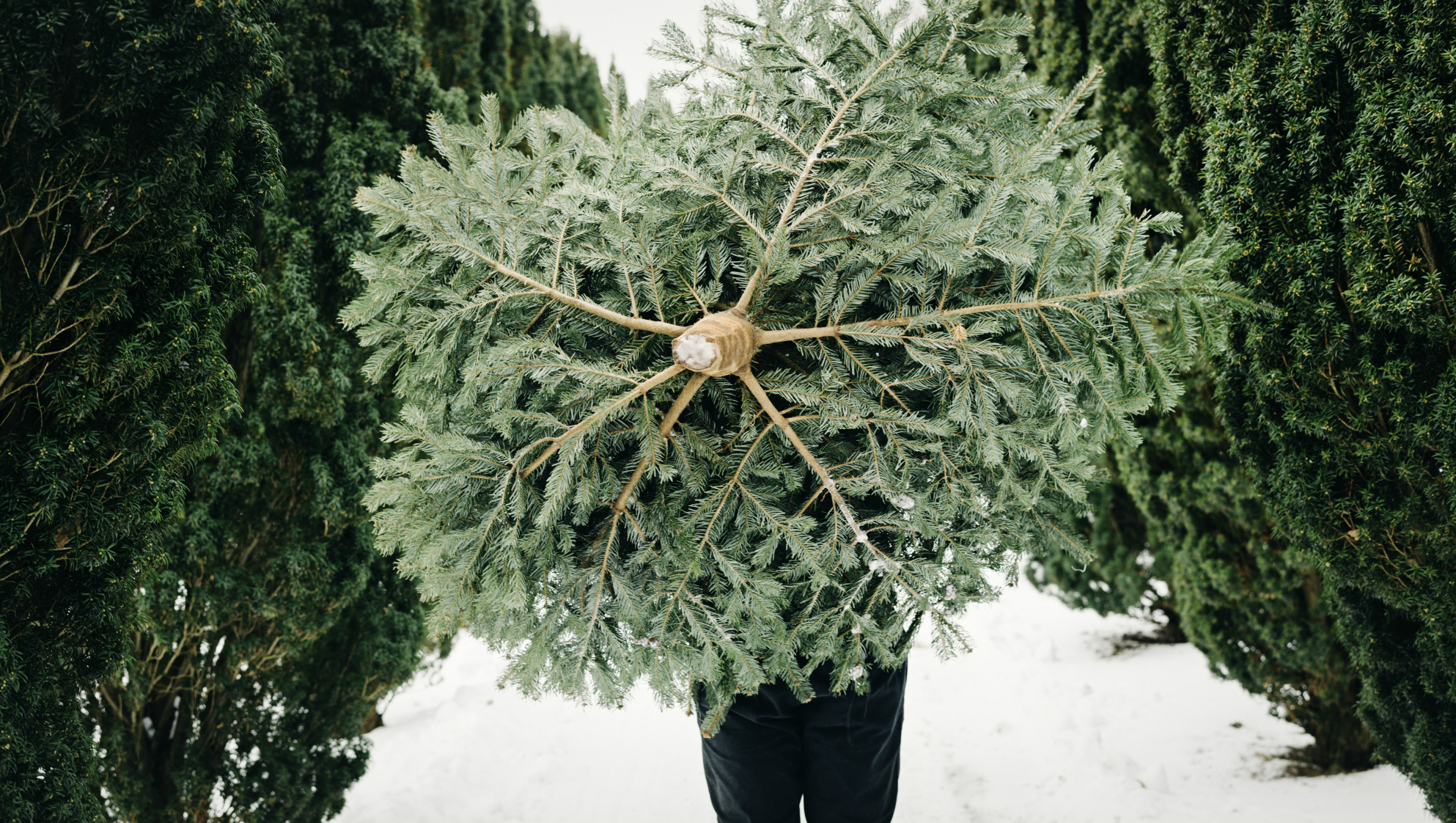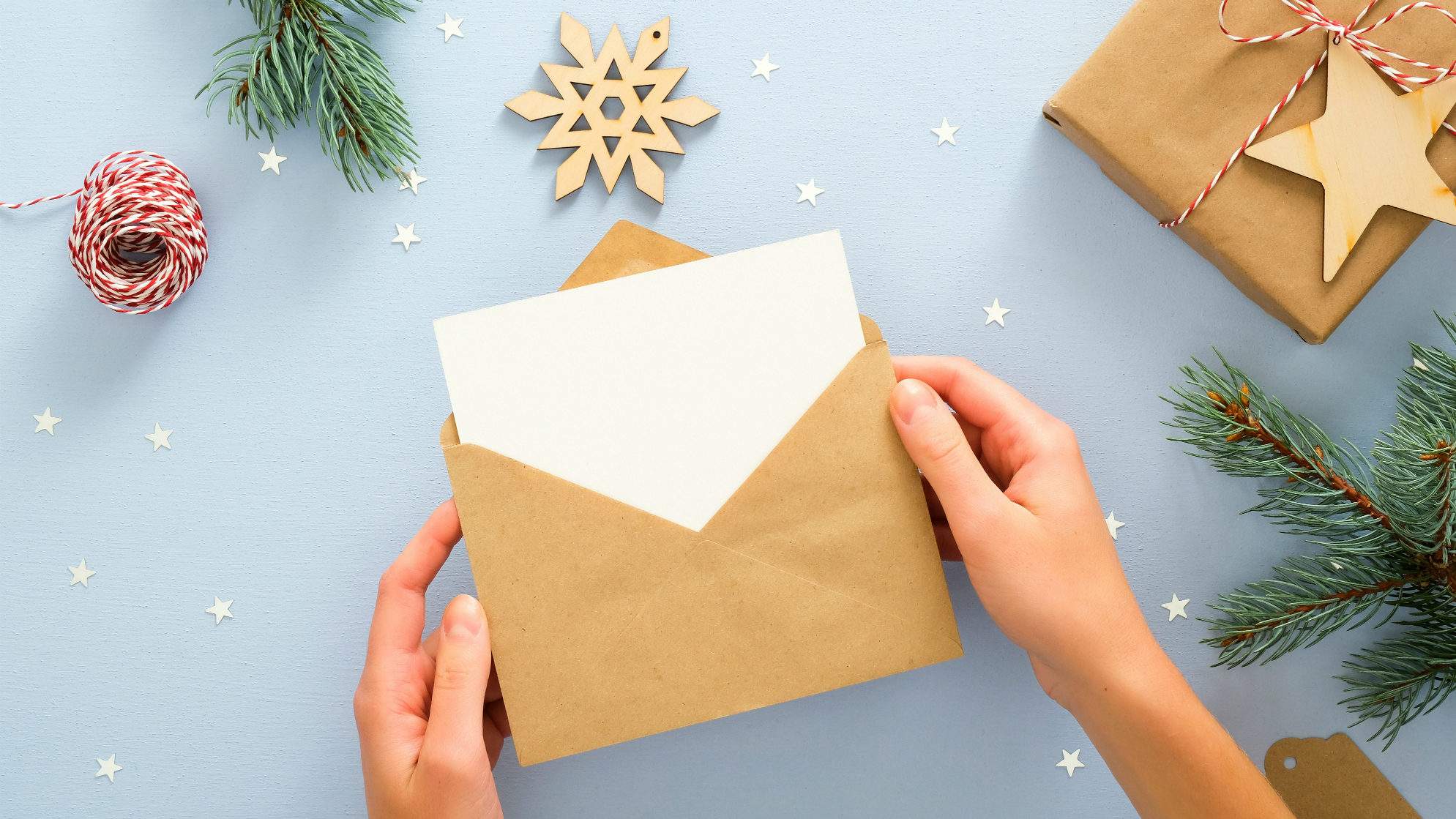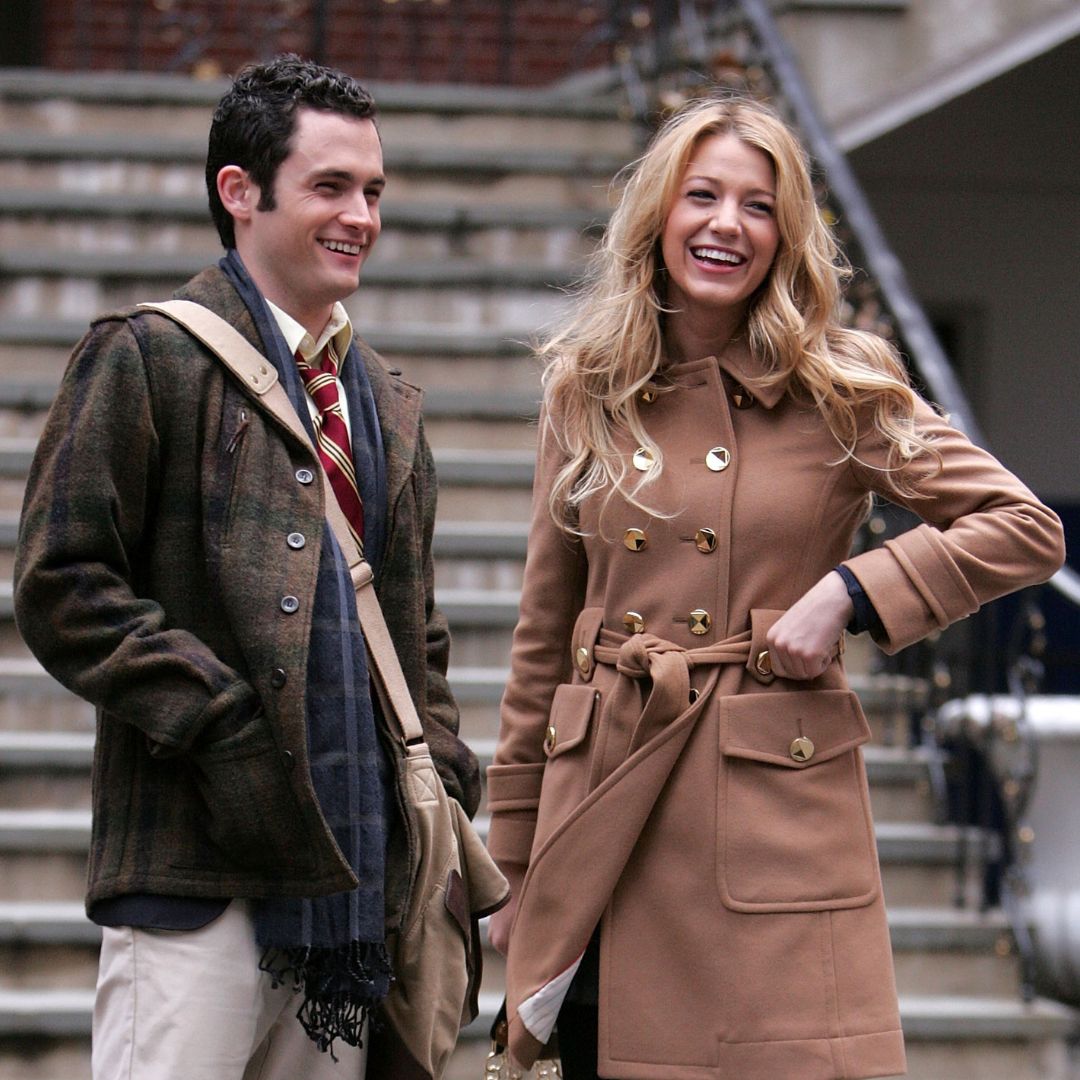15 simple ways to have a more sustainable Christmas, according to the experts
Celebrate in planet-friendly style.

The holiday season is upon us, which means mulled wine by a roaring fire, Mariah Carey’s Christmas hits on repeat, and, erm, three million tonnes of waste. That’s right, - experts reckon that during the festive season, we produce an extra 30 per cent of rubbish (around three million tonnes is discarded).
Mass consumption - like excessive food waste, and pressure to gift even when the gifts won't be used - is linked to environmental damage of epic proportions, which is hardly great when we know the state the planet’s in already.
Want to do better this year? Here’s how to have a jolly good sustainable Christmas, including the best ethical gifts and all. Don't miss our guides to sustainable living and recycling while you're here.
How to have a sustainable Christmas
Gifting
Did you know? The average Brit spends £381.60 on Christmas gifts alone each year. “Over-consumption has become the norm and the masses of packaging is having a damaging impact on our planet."
That said, ethy co-founder Kaisa Kangro reckons you can give ethically this festive season. Her first tip? Ask what they really want.
“Surprising your friends and family on Christmas Day can be part of the festive fun, but by asking our loved ones what it is they actually want, we can save money spent on unwanted gifts and get them something they will really enjoy and cherish for years to come," she shares. This makes them less likely to throw their unwanted gifts away.
Next up: make sure you keep the receipt in case they'd like to exchange or return an item (and don't take offense if someone does) and opt for B Corp brands that you know are genuinely doing their bit for both people and planet.
Marie Claire Newsletter
Celebrity news, beauty, fashion advice, and fascinating features, delivered straight to your inbox!
If you can also support social causes this Christmas - that is, give the gift of a charitable donation - win, win. “Christmas is a time for kindness and thinking about our community," shares Kangro. "A great way to take action and support your community is by choosing to buy from organisations that help our communities thrive."
Christmas trees
Already own a plastic tree? Don’t chuck it, whatever you do. According to the Carbon Trust, plastic trees need a minimum of ten Christmases to be less environmentally harmful than real ones, so if you already have one, aim to take seriously good care of it. If you’re in the market for a real tree, check out recommendations from Forestry England - trees are sourced from sustainable forests and have a shorter transportation line.
Once Christmas is over, recycle it through your council’s recycling scheme or take it to a local recycling facility. If it was potted with its roots intact, you could always replant it in your garden until next year (you’ll need to replant it once the weather is warmer though, so keep it in a garden shed or garage until springtime).
You can rent a tree, too – it’s better for the environment and around 30 per cent cheaper than purchasing. Sites like Rental Claus or Love A Christmas Tree have options to borrow over the festive period.

Decorations
Like it or not, one of the best ways to be sustainable when it comes to Christmas decorations is to get crafty. Instead of reaching for tinsel (which can’t be recycled, FYI), try making the most of what nature gave us. Dried-fruit peels, pine cones, holly sprigs, and foliage from the garden can all be turned into rustic-looking decorations in just a few minutes – and, even better, returned to the garden once done.
DIY paper chains, snowflakes, and homemade wreaths will keep kids entertained for hours, and if you have plastic decorations, take care of them (protect them with old newspaper or tissue when packing them away) so that they can be reused again and again.
The same goes for fairy lights - instead of throwing them out as soon as one bulb goes, replace individual bulbs (visit YouTube for tutorials) and buy LED once they’re gone for good (they’re much more energy-efficient and cheaper to run). Setting a timer for lights means electricity won’t be wasted, either.
Cards and wrapping paper
Still deliberating over whether to send cards? Maybe this will help make up your mind: an eye-watering 1.5 billion cards are discarded each year. Instead of wasting paper (and worrying whether they’ll actually arrive) why not send e-cards? Websites like Green Envelope and Paperless Post have great options that you can personalise.
If only real cards will do, go sustainable. Look out for the Forest Stewardship Council (FSC) mark, which means the paper was produced sustainably. Or try plastic-free 1 Tree Cards who plant trees for every card purchased, and use 100 per cent recycled cards and envelopes, plus vegan inks.
Oh, and always avoid glitter – it can’t be recycled. The same goes for wrapping paper – the shiny, glittery stuff is a no-go. Instead, go retro and wrap gifts using old newspapers and recyclable brown paper, tied up with string.

Crackers
Stats say we pull around 154 million crackers each year in the UK – which all head straight to landfill. Instead of buying the first (or cheapest) pack you see, look for recyclable options printed on FSC paper, and plastic-free gifts. House of Crackers and Love Tiki have some great options.
Or make your own - Keep This Cracker send reusable crackers to your door, without any single-use plastic. Fill them yourself with thoughtful gifts or jokes and reuse them each year, guilt-free. Or, kill two birds with one stone and get the kids to make their own Little Crafty Bugs versions.
Christmas dinner
It’s the moment we’ve all been waiting for – but how many of us buy way too much food at Christmas? Food waste is serious business: we throw away the equivalent of two million turkeys and 74 million mince pies each year. When it comes to your turkey dinner, the good news is that poultry is less environmentally impactful than say, beef or lamb, but it’s still worth thinking about where it’s sourced.
Buying local and organic tends to mean less carbon emissions, but size is key, too – do just two of you really need a whole turkey? If going vegan is a step too far, you could aim to buy fruit and veg loose, without the plastic packaging (be sure to take your own bags to the supermarket, too).
Freeze leftovers and give away what you don’t need using food-sharing app Olio - it allows locals in your area to use up what you won’t. Now might be a good time to start using that mysterious composting caddy your council left in your garden, too….

Ally Head is Marie Claire UK's Senior Health and Sustainability Editor, nine-time marathoner, and Boston Qualifying runner. Day-to-day, she heads up all strategy for her pillars, working across commissioning, features, and e-commerce, reporting on the latest health updates, writing the must-read wellness content, and rounding up the genuinely sustainable and squat-proof gym leggings worth *adding to basket*. She also spearheads the brand's annual Women in Sport covers, interviewing and shooting the likes of Mary Earps, Millie Bright, Daryll Neita, and Lavaia Nielsen. She's won a BSME for her sustainability work, regularly hosts panels and presents for events like the Sustainability Awards, and is a stickler for a strong stat, too, seeing over nine million total impressions on the January 2023 Wellness Issue she oversaw. Follow Ally on Instagram for more or get in touch.
-
 Penn Badgley and Blake Lively kept their breakup a secret from the Gossip Girl cast and crew - here's what we know about their former relationship
Penn Badgley and Blake Lively kept their breakup a secret from the Gossip Girl cast and crew - here's what we know about their former relationshipBy Jenny Proudfoot
-
 Spring has finally sprung - 6 best outdoor workouts that are totally free and boost both body and mind
Spring has finally sprung - 6 best outdoor workouts that are totally free and boost both body and mindSoak in the nature and boost Vitamin D *and* endorphins.
By Anna Bartter
-
 This iconic rose perfume is a compliment magnet—it makes me feel ‘put together’ after just one spritz
This iconic rose perfume is a compliment magnet—it makes me feel ‘put together’ after just one spritzGrown-up and elegant, yet not at all dated.
By Denise Primbet